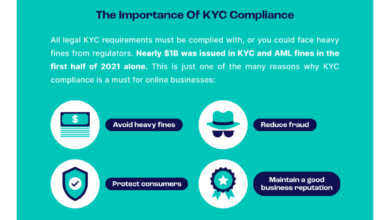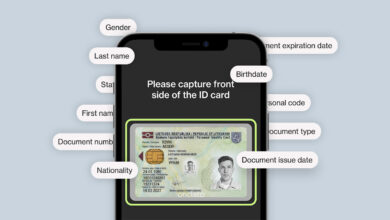The Basics of Starting a Forex Brokerage or Quick Reference Guide to the Forex World

If you’re looking to start a Forex brokerage, this guide will provide you with the essential information you need to get started. We’ll discuss the steps involved in creating a brokerage, from registering with authorities to marketing your exchange. With this information, you’ll have everything you need to become a forex broker and be on your way to making a profit in the exciting world of Forex.
The FX market is a global market for the trading of currencies. It is one of the most liquid financial markets in the world, with a daily turnover of more than $5 trillion. The market is decentralized, meaning that there is no central exchange or clearinghouse. This allows for 24-hour trading and gives traders the opportunity to trade in multiple time zones.
What is a Forex Brokerage?
A Forex brokerage is an entity that facilitates the buying and selling of foreign currencies. They offer a variety of services, including online platforms that allow you to buy and sell foreign currency pairs, as well as other investment products. Many FX brokers also offer other services, such as market analysis, educational resources, and customer support. A Forex broker may act as an intermediary between a retail investor and a dealer, or it may trade directly with other market participants. In either case, the FX brokerage earns a commission for its services.
Types of Forex Brokerage: Business Models and More
When you open a forex broker company, you have the option of operating under several different business models. You can choose a white label model, an agency model, or a hybrid model.
- White Label
A white label Forex brokerage is a business that provides online platforms and other services to retail investors who trade Forex. The white label brokerages typically use the same software and platforms as the dealers they are associated with. The main difference is that white label brokerages brand their own name on the products and services they offer. This type of brokerage allows you to tap into the dealer’s market expertise and technology while still building your own brand. One of the main advantages of operating a white label brokerage is that it can be less expensive than developing your own platform from scratch. This is a great alternative for a new Forex broker startup because it eliminates the need to create a completely new infrastructure.
-
Agency
The agency model is a type of brokerage in which the brokerages act as agents on behalf of their clients. In this model, the brokerages do not take on any risk themselves. Instead, they simply execute trades on behalf of their clients and charge a commission for their services. This type of model is often used by larger brokerages that have the resources to provide a full suite of services to their clients. These brokerages will often offer other services such as market analysis and educational resources. The main advantage of the agency model is that it allows the brokerage to focus on providing its clients with the best possible service without having to worry about taking on any risks themselves.
-
Hybrid
The hybrid model is a type of FX brokerage that combines aspects of both the white label and agency models. In this model, the brokerage provides online platforms and other services to retail investors but also takes on some risks. This type of model is often used by brokerages that want to provide a full suite of services to their clients while still being able to take on some risks themselves. The main advantage of the hybrid model is that it allows the brokerage to offer a complete package of services to its clients while still being able to participate in the market itself.
FX brokerages are also classified into three types: retail, institutional, and hybrid.
-
Retail
Retail brokerages are the most common type of brokerages. They cater to individual or small investors who trade through an online platform. The main advantage of a retail brokerage is that it offers a wide variety of services, including market analysis, educational resources, and customer support. In addition, retail brokerages typically offer lower commissions than institutional brokerages.
-
Institutional Brokerage
Institutional brokerages are geared toward large investors, such as banks and Hedge funds. These types of brokerages often have direct access to the interbank market and can provide their clients with better prices and execution. In addition, institutional brokerages typically offer higher commissions than retail brokerages.
-
Hybrid
Hybrid brokerages are a mix of retail and institutional brokerages. They cater to both small and large investors and offer a wide variety of services. Hybrid brokerages typically offer lower commissions than institutional brokerages but higher commissions than retail brokerages. They do, however, have tighter spreads and faster execution speeds.
Business Plan
Develop your business plan once you’ve chosen the type of brokerage you want to start. This should include your marketing strategy, target market, financial goals, and operational procedures.
Your target market is the group of people who are most likely to use your services. When defining your target market, consider factors such as age, location, income, and investment goals.
Your financial goals will determine how much money you need to make to be profitable. Make sure to factor in the costs of operating your business, such as rent, salaries, and technology expenses.
Your operational procedures should outline how you will run your business on a day-to-day basis. This could include everything from opening and closing times to client onboarding procedures.
Registration
You also need to register your business with the proper authorities. This usually involves obtaining a business license and permits from your local government.
It is important to note that regulation does not guarantee safety. Even regulated brokerages can go out of business or engage in fraudulent activities. But regulation does provide some level of protection for investors by ensuring that brokerages meet certain standards and follow specific rules.
Trading Platform
Once you’ve registered your business and obtained the necessary licenses, you need to choose a trading platform. This is the software that your clients will use to trade Forex.
There are many different types of trading platforms, so it’s important to choose one that meets your needs. For example, if you’re catering to beginner investors, you might want a platform that is easy to use and has a lot of educational resources.
On the other hand, if you’re catering to more experienced investors, you might want a platform with more advanced features and tools.
It would be best if you also considered the costs of each platform. Some platforms charge monthly fees, while others charge per trade. Make sure to factor in these costs when choosing a platform.
Liquidity Providers
You also need to connect with liquidity providers. There are many different types of liquidity providers, so it’s important to choose ones that fit your needs. For example, if you’re catering to high-volume traders, you’ll need to connect with liquidity providers that can handle a large number of trades.
Payment Processor
It would be best if you also chose a payment processor. This is the company that will handle your clients’ payments.
There are many different types of payment processors, so it’s essential to choose one that meets your needs. For example, if you’re catering to international clients, you’ll need a processor that can handle foreign currencies.
Also, consider the costs of each processor. Some processors charge monthly fees while others charge per transaction. Make sure to factor in these costs when choosing a processor.
Technology Provider
Lastly, you need to choose a technology provider. This is the company that will provide you with the necessary software and infrastructure to run your business.
There are many different types of technology providers, so it’s important to choose one that meets your needs. For example, if you’re catering to high-volume traders, you’ll need a provider that can handle a large number of trades.
Marketing
When it comes to marketing your Forex brokerage, there are many different options. You can use traditional methods, such as print or television advertising, or you can use more modern methods, such as online advertising or social media marketing.
Another option is using referral programs or affiliate programs to help you market your business. These programs can be a great way to generate leads and grow your customer base.
Now that you know the basics of opening a Forex brokerage, it’s time to get started! Register your company, select a platform, link with liquidity providers, and begin marketing your company. You can be successful in the FX industry with hard work and commitment.
For more information see more here.



